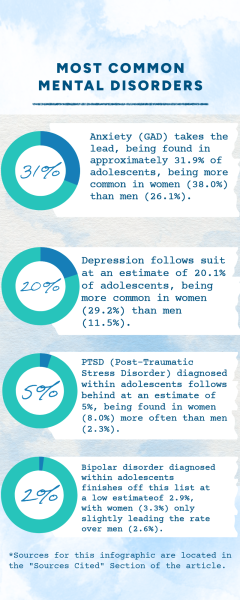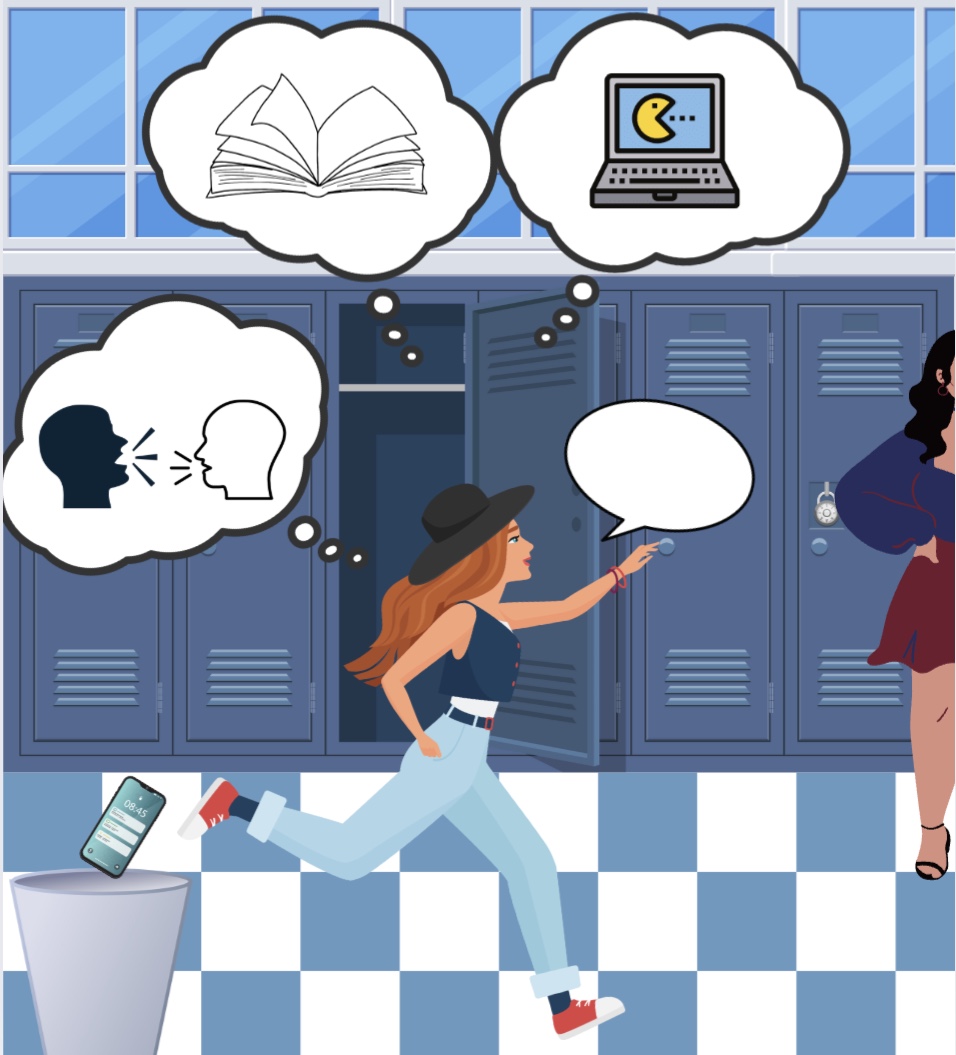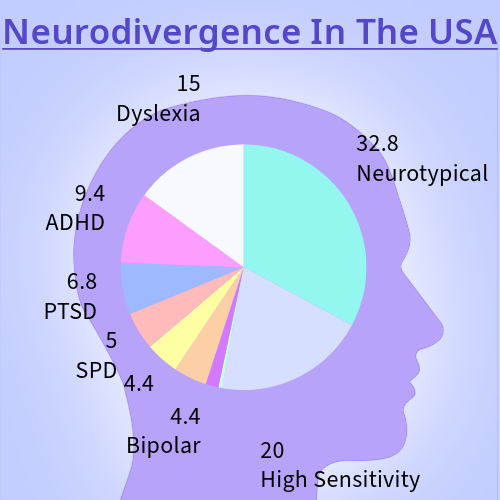Within society, mental disorders are becoming more and more commonplace. Maybe your best friend struggles with anxiety, maybe your sibling is depressed; these are examples of what can occur when a person’s outlook on life and their mental health is allowed to spiral out of control, even to the point of no return.
Why Is It Important?
Mental health is important due to the fact that it has a huge impact on our overall well being. Just like emotions, mental health sways and varies based on the environment that influences it positively and/or negatively. Because of this, a person’s entire outlook on life can change at a moment’s notice.
For example, a stressful environment will lead to an overwhelming amount of pressure, which leads to an urgency to complete things as quickly as possible, which drains people’s motivation and happiness, leading to burnout and feelings of carelessness. If this cycle continues for too long, or much longer than it should, this can eventually lead to someone acquiring a mental disorder, most likely depression or anxiety.
To prevent this cycle from happening, taking things in stride and one at a time, while giving yourself time to breathe and relax will help lessen the risk. Instilling this as a habit in life will help improve one’s mental wellbeing, and avoid drowning in immense despair and sadness.
However, mental disorders will still persist, even if someone tries to monitor themself, and it is ultimately up to them what habits they pick up to either help get better or eventually get worse.
Most Co mmon Disorders and Their Causes
mmon Disorders and Their Causes
Depression
People more likely to experience depression through your day to day life, especially if they’re an adolescent. Teenagers tend to be impacted a little more than adults, with two prominent factors being stress and bullying. According to the National Institute of Mental Health, “In 2021, an estimated 3.7 million adolescents aged 12 to 17 in the United States had at least one major depressive episode with severe impairment in the past year. This number represented 14.7% of the U.S. population aged 12 to 17.”
Depression is nothing to joke about, and neither is it a “phase,” as it is referred to oftentimes. Depression is something that will impact a person for a long time, and is not very likely to leave. There is medication to take that can help cope with this disorder, but keep in mind that some medications have side effects that may increase the feeling of it, rather than stop it.
Anxiety (GAD)
Anxiety as well is a disorder that kids are more likely to experience, as the National Institute of Mental Health found that in a survey they conducted, 31.9% of adolescents had this disorder. However, it can be misconstrued. Anxiety as a feeling is not uncommon, as we experience it before tests, for example, and during moments of uncertainty. Anxiety as the disorder, however, is more prevalent, and may induce anxiety attacks, where a person may be locked on overthinking how uncertain their future and/or a decision may be.
Situations that heavily impact anxiety are stressful situations, drug misuse or withdrawal, traumatic moments, and having other mental disorders.
Anxiety doesn’t have an exact fix either, but it would help to seek therapy, support groups, and being surrounded by people who are drama-free and have social interactions that don’t leave one prone to worrying.
PTSD (Post-traumatic Stress Disorder)
PTSD, or post traumatic stress disorder, usually develops after a person experiences a situation that leaves such a harsh impact, that trauma may be considered an understatement. These situations usually consist of violence and assault, natural and human caused disasters.
It’s common to hear of veterans experiencing PTSD after they come home from a war. This is due to the fact that they’ve seen horrible and horrendous things, like losing their fellow soldiers in the war, and having a few close encounters themselves–this is an example of a violent situation, and usually this causes a person to have a panic attack whenever they hear or feel something even slightly similar to the situation that has scarred them.
The National Institute of Mental Health supports this by stating, “About one half of all U.S. adults will experience at least one traumatic event in their lives, but most do not develop PTSD. People who experience PTSD may have persistent, frightening thoughts and memories of the event(s), experience sleep problems, feel detached or numb, or may be easily startled. In severe forms, PTSD can significantly impair a person’s ability to function at work, at home, and socially.”
Bipolar Disorder
Bipolar disorder is not usually caused by an outside impact, such as the environment, but rather by genetics and biological differences.
Most symptoms of bipolar disorder are extreme mood swings, major depressive episodes, mania and hypomania. Mania is more severe than hypomania, and usually causes more noticeable problems in public settings, such as school and/or work. Mania can also cause psychosis, which is a break from reality, that may require hospital treatment. According to Mayo Clinic, “Manic and hypomanic episodes include three or more of these symptoms: Being much more active, energetic or agitated than usual, feeling a distorted sense of well-being or too self-confident, needing much less sleep than usual, being unusually talkative and talking fast, having racing thoughts or jumping quickly from one topic to another, being easy to distract, and making poor decisions. For example, you may go on buying sprees, take sexual risks or make foolish investments.”
Within adolescents, bipolar is much harder to find, due to its symptoms being related to other disorders. But that doesn’t mean that it gets better on its own. Seeking medical help from healthcare or a mental health professional will be beneficial, as they provide medication and psychotherapy.
A Word of Advice
Life tends to dump millions of problems onto our shoulders without offering any foreseeable solution. Due to this, it’s easy to fall into the cycle of thinking that you may never be able to find a way out of the situation, leading to an overwhelming sense of desperation and hopelessness. As hard as it is to believe, there is always light at the end of the tunnel. Regardless if you’ve already given up hope, or are almost ready to, life can be as kind as it is cruel.
If you or someone you know is on a rapid decline to the point where they may consider a permanent solution, support is the best thing you’ll need, so consider reaching out to the hotlines provided.
Hotlines:
Help and Crisis Hotline: 988
Emergency Line: 911
Crisis Text Line: Text “HOME” to 741741
Know that no matter a situation you, a loved one, or a peer may be facing, kindness and empathy will go a long way.












